SPOILER WARNING:
SPOILERS FOR THE STORIES OF FIRE EMBLEM FATES AND FIRE EMBLEM AWAKENING FOLLOW
This is the second in a three part series on my review of
Fire Emblem Fates.
When it comes to Fire Emblem Awakening, what really made it
special, at least to me, and what I was most curious about with Fates, was its
narrative. The story of Awakening was exciting and engaging, there were many
great sequences in the story that stuck with me. The characters were
interesting, likable, and memorable, and the ending was very impactful and has
stuck with me as one of my favorite video game endings. The gameplay of course
which I adore from Fire Emblem also helped, as did the incredible soundtrack
(Fates’ soundtrack is also quite good), but at its core, the narrative is what
made Awakening so special to me. So, with that in mind, how did Fates do?
Initially, I was not sure how I would feel about Fates’
narrative. When the game released and impressions came out, I noticed a lot of
negativity surrounding the game’s narrative. I was worried, but also a little
skeptical. I knew from researching the game that Intelligent System (the
developers) hired a professional writer for the game’s story, and they talked a
lot about it as a special quality of the game.
Having played the game however, I can say that I agree with
the majority of fans in saying that Fates’ narrative is its biggest let down.
There are a couple of core problems I had. First, the set up. One thing I liked
about the story of Awakening and Fire Emblem games in general, is that their
stories have a few points in which there will be a time skip and large change
in the narrative. The main enemy of the current quest will be defeated, and
characters will go their separate ways and enter an era of relative peace. I
love these time skips, because it allows the story to then become unpredictable
to the player, since you have no idea where things will go next. It allows
there to be multiple main enemies, and it also means you can have characters
develop and change after the time skip, to create a lot of interesting scenarios
for them. Characters can move up in status from when you last saw them, switch
factions, have new occupations, experience a tragic loss, etc. and you can then
see the ramifications of their change and its effects on you and the story. It
also means you can then split the story into arcs between time skips with
multiple villains, and then look for parallels, contrasts, etc. In general it
makes the story a lot more interesting and I’ve always seen them as a core part
of Fire Emblem stories.
Awakening's villains
Which is why it’s all the more disappointing that Fates has none of this. During the first 5 chapters of the game, before the big choice, King Garon is established as the main villain, and he remains as such for the entire campaign in both the Birthright and Conquest paths. It’s even worse in the Revelations path, in which, immediately after making the choice to go down that path, the game reveals King Garon’s master, Anankos as the true villain of the game. He then remains the main objective for the story the entire way through, removing any sort of mystery the game could have had by not revealing him so early on. All in all, this means there are little to no major plot twists in the stories of all 3 paths, and no time skips or significant changes for the characters, making the stories of all 3 paths feel less interesting than Awakening’s story.
Fates' Villains
I can only guess that the reason for this comes from the massive scale of the game. Fire Emblem Fates is essentially 3 games in 1. It’s 3 times larger than Awakening, with roughly double the amount of characters. It would not surprise me if the size of the game is what accounts for all the stories feeling lacking in comparison to Awakening’s. With so many stories to make, less effort was put into them then if there were only one.
This brings me to Fates’ main selling point, the choice of 3
paths. Fire Emblem Fates is 3 games in 1, but you can only choose 1 path to go
down when you first play it. Your chosen path will be the one you think would
suit you best, and then if you choose, you can return to the choice in the
story and go down other paths (for more money of course). This is the big question
I want to ask in this review, was the choice to make the game so huge and centered
around this large choice worth it?
I’ve already gone over how the 3 stories suffer from how
dense the game is, but I also find the emphasis on choice lacking as a thematic
theme. Given that the choice at the start of the game is so important for the
rest of the game, I thought the game might have a large theme of choice to it,
in which the player is given other significant choices later on in each path
that might affect how characters grow, or how parts of the story play out in
the end. To my disappointment, this isn’t the case. While each of the paths do
make it clear that the choice you make at the start of the game is important,
and how that choice laid the foundation for the entire future path you go down,
there are no other significant choices after that. For a game that’s supposed
to be about choice, the player is given very little of it.
This is made even more disappointing when you compare Fates
to its older sibling. A large part of what made Awakening’s story so memorable
to me was the choice available to the player, especially at the ending. Awakening’s
story has certain scenes in which characters will change in a way that the
player can affect. Chrom after one time skip will marry whichever character he
has the highest support with. In one scene Lucina will have a dramatic moment
with the player, which will have different dialogue depending on the player’s
relationship with her. And finally, the ending. Awakening’s ending offers the
player an important choice that will lead to 1 of 2 endings. Not only will the
player’s choice here affect the entire ending of the game, but whomever the
player marries will see a very different ending then the other characters based
on the player’s choice. It really feels like the player has agency in these
moments, and not only does it make the game fun to discuss with others
(comparing what you chose), it also makes the story feel special. Fates has
none of these scenes and choices, there are no choices that have large impacts
on a character, the endings do not even have any special scenes between the
main character and whomever you married. Unlike Awakening, I did not bother
looking up what choice players made in Fates, because there simply were none.
Awakening’s ending also sheds light on another problem with
Fates’ choice. See, while Awakening has 2 endings, of which the player must
choose 1, neither is the “true” ending. Both are good in their own way, and in
doing so, it means the player will think critically about which choice to make,
since there is no best option, and again will make the choice feel significant.
You would think, in a game that makes a big deal about its initial choice to 3
paths, Fates’ story would establish that all 3 are good paths in their own way.
Yet… this is not the case. At the beginning of the
Revelations path, the game spells out to you in no uncertain terms that King
Garon (the villain of the first two paths) is merely a puppet of Anankos, and
only by defeating him can you truly save the world. This completely invalidates
the story of Birthright and Conquest, making Revelations the clear true path.
This was really disheartening to me, because now in hindsight I can’t help but
view the stories of Birthright and Conquest as less conclusive, since you
merely defeat the puppet of the main villain. However, the real threat is still
out there and will likely return soon. It makes the choice, the all important
choice at the beginning of the game, feel meaningless, since it is a matter of
picking the right choice, or the wrong one.
Making Revelations the true path also feels troublesome from
a gameplay perspective. It would mean that the ideal and perhaps intended way
of playing Fates is to play all 3 paths, since this would lead to the true
ending. This means that players who decide to only buy and play 1 path will get
a lesser ending. At the same time, playing through all 3 paths is a tedious
task. As I said earlier, I was only able to do so by taking a break between
each of the 3 paths. Hiding the true ending behind such a difficult requirement
means that most players will not experience the true ending. This could have
been avoided if one of two changes were made:
1) The endings were changed. I am still ok with Revelations
being the true ending, but I would not have it invalidate the endings of
Birthright and Conquest. Say, tell the player at one point that defeating King
Garon instead of Anankos would sever its connection to the world, saving the
world, but that the main villain might return thousands of years later. This
would ensure the endings of Birthright and Conquest are still important and
good endings in their own way, while at the same time still having Revelations’
ending be the true one. Or:
2) Have significant gameplay changes between the 3 paths,
such that playing through all 3 of them back to back is an enjoyable experience
for the player, rather than a tedious one.
This is a major problem I have with the 3 path structure.
The story of the 3 paths encourages you to play through all 3, but the gameplay
itself does not. Because the gameplay of the 3 games is so similar, once you’ve
played one path, you’re not really going to get anything new gameplay wise from
the other paths, discouraging you from playing through them. It is a contradiction
that in my mind really cripples the 3 path structure, and again, makes the
decision to make the game 3 paths feel like the wrong move.
That’s it for this part, but I still have one part of the
narrative left to unpack, arguably the most important: the characters. Find
part 3 for the conclusion.
Link for part 3: http://johnnyappleshy.blogspot.com/2019/03/fire-emblem-fates-review-characters.html
Link for part 3: http://johnnyappleshy.blogspot.com/2019/03/fire-emblem-fates-review-characters.html
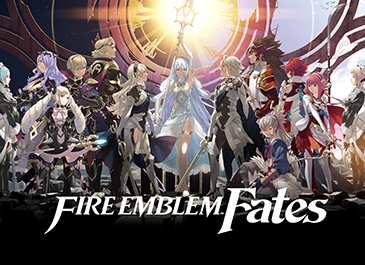
.png/revision/latest/scale-to-width-down/1000?cb=20170326025425)
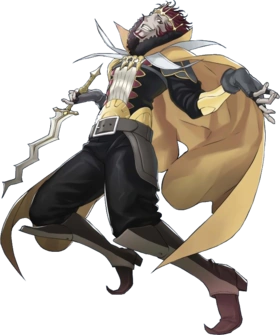
.png/revision/latest/scale-to-width-down/250?cb=20160713052154)
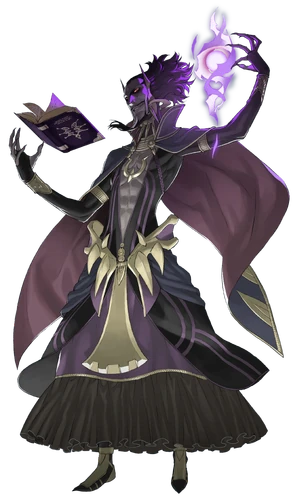
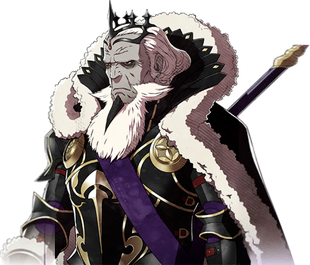
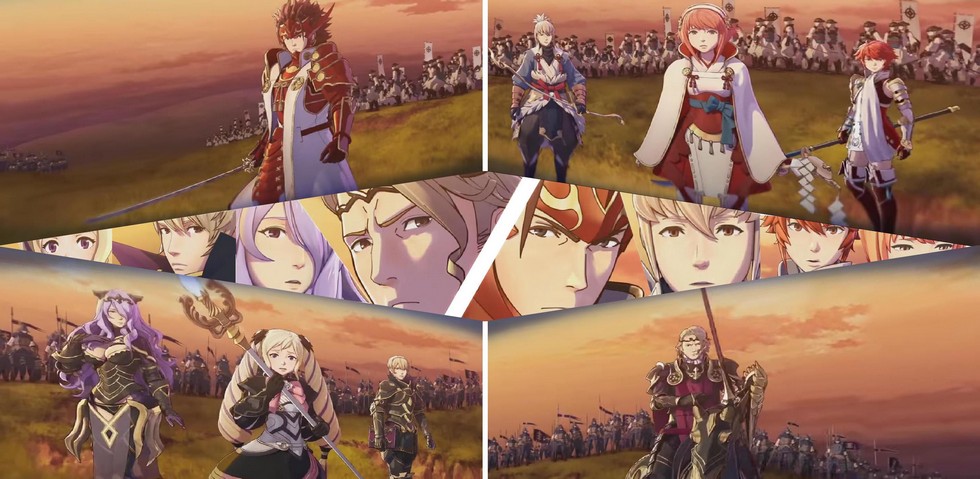




No comments:
Post a Comment